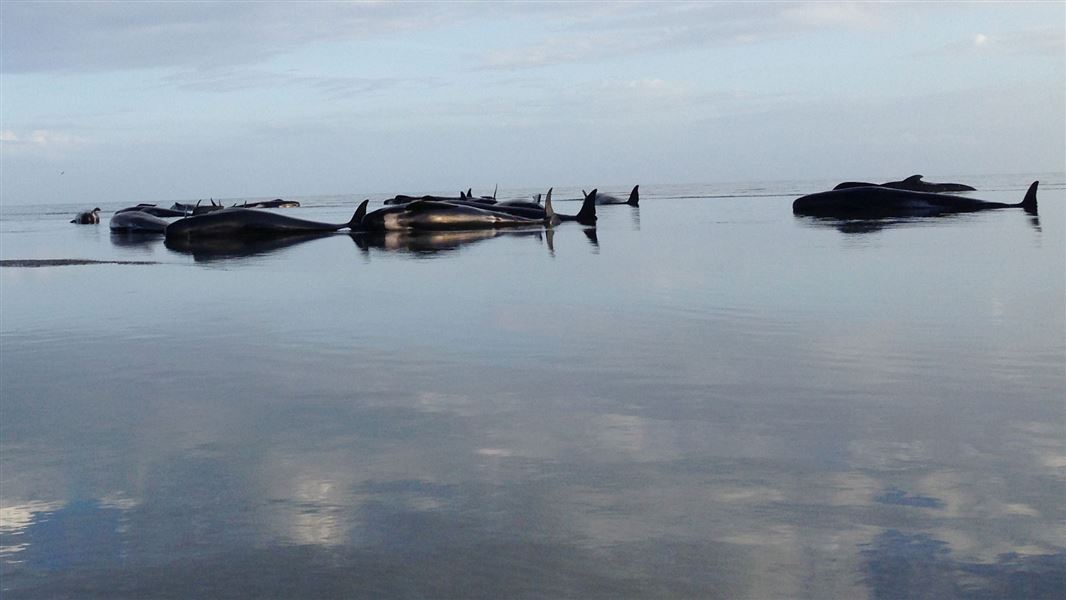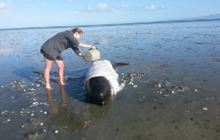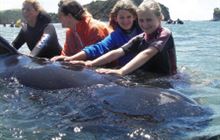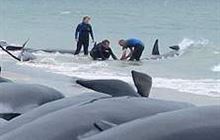
Introduction
Find out why whales and dolphin strand, the stages involved in a stranding response, and how you can help.Report whale or dolphin strandings to the DOC emergency hotline 0800 DOC HOT
(0800 362 468).
New Zealand is a hotspot for marine mammal strandings. Since 1840, more than 5,000 strandings of whales and dolphins have been recorded around the New Zealand coast. Strandings occur all year round and usually involve just one or two animals. Mass strandings on the other hand, involve more than two animals, but may involve hundreds of animals.
New Zealand is at the forefront of whale rescue work. DOC manages whale strandings and rescues, with the help of local communities, volunteers, and organisations like Project Jonah. DOC responds to an average of 85 stranding incidents per year, usually of single animals.
The most common species that strand alone are common dolphins, pygmy sperm whales, and beaked whales. Occasionally mass strandings occur and the majority of these are long-finned pilot whales. Even large whales such as sperm whales have been known to strand occasionally.
Our role
DOC is legally responsible for implementing the Marine Mammals Protection Act 1978. This means that we are in charge at marine mammal stranding events. As the lead decision maker, our responsibilities include:
- protecting the welfare of stranded animals
- disposing of any dead marine mammals
- ensuring the health and safety of staff, volunteers, and the public
- enabling cultural protocols – this involves consulting with local iwi and hapū through every step of the stranding, including rescue, euthanasia, sampling and disposal
- enabling research, eg through the collection of scientific samples.
Helping at a stranding
Anyone can help out at a stranding event as long as they are physically able.
To be more prepared to help at a stranding you can attend a Marine Mammal Medic Course run by Project Jonah. Medics who have completed the course will be well equipped to help rescue stranded whales and dolphins and can act as a role model to untrained rescuers.
Being trained by Project Jonah means you will be more aware of the rescue process, including health and safety risks, which makes the process run more safely and smoothly.
Your efforts are much appreciated by DOC. Many whales are saved each year with the help of volunteers – every effort contributes towards their conservation.
Download a brochure: Stranded whales and dolphins: How you can help (PDF, 1,598K)
Learn about the five stages that you'll go through when helping in a stranding rescue response.
Find out about the health and safety guidelines you need to follow at a stranding.
Marine mammal strandings are not fully understood and may be caused by more than one factor.
View pathology reports from Massey University for significant marine mammal incidents.



